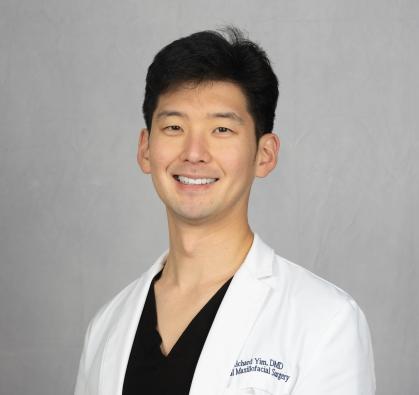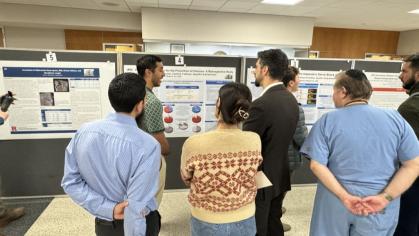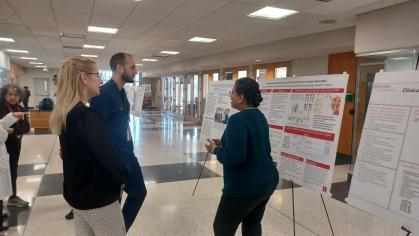Surgery with Impact
Richard Yim's journey through the medical field took an unexpected turn when he found himself immersed in the world of oral maxillofacial surgery. It wasn’t the path he had initially envisioned; early in his education, he had shadowed surgical oncology, only to realize that the harrowing life-and-death decisions of cancer surgery did not resonate with his aspirations.
“I decided that wasn’t where I saw my future,” Yim reflected.
His exploration eventually led him to the University of Pennsylvania, where a burgeoning interest in dentistry took hold, and within it, he discovered his calling in oral surgery.

Now, as an assistant professor at Rutgers School of Dental Medicine (RSDM), Yim specializes in procedures that are not only medically complex but deeply personal to his patients—none more so than facial feminization surgery. He’s working with a team of Rutgers doctors and the Rutgers Center for Transgender Health to offer this surgery more regularly. This surgery goes beyond the technicalities of surgery. It's a transformative process that aligns one's appearance with their gender identity. “This is about the individual's journey to their true self,” he said, articulating the profound impact of these procedures on transgender individuals.
While at Walter Reed National Medical Military Center, Yim was introduced to facial feminization surgery. He quickly understood the pressing need for such services. “It really bloomed into its own service because we never realized how many patients were in need in the military,” he observed.
The effects were clear and immediate. Before surgery, many patients seemed withdrawn, but the post-operative changes were striking. “Their eyes are different. They're sparkling, they're gleaming, they're confident,” Yim noted, capturing the essence of the transformation. He noted that evidence-based studies found that facial feminization surgery significantly lowered suicidal ideations and substance abuse for the appropriate patients. Faces play such a major role in society, he explained. For many transgender patients, “every daily task is a fight with their identity and with society.” And many patients experience emotional abuse and physical violence every day. “After surgery, patients would tell me, ‘Yesterday was the first time I was able to do grocery shopping, and nobody looked at me,’” he recounted. “It’s a life-altering event where they can go out in society, function as the gender they wish to be, and nobody pays them any mind. Just like you and me.”
At Rutgers, his commitment to this work has not waned. He's taking significant strides in making these life-changing surgeries more accessible. His dedication also extends to technological advancements, with a keen interest in augmented reality to enhance surgical precision.
“At Walter Reed, I believe we were the first team to utilize augmented reality intra-op,” he commented, “I really do think this technology is our next step as surgeons. As a specialty, it’s something we must embrace, learn, and be leaders in, and hopefully, I can help Rutgers achieve that and become the forefront of new technology and innovation.”



